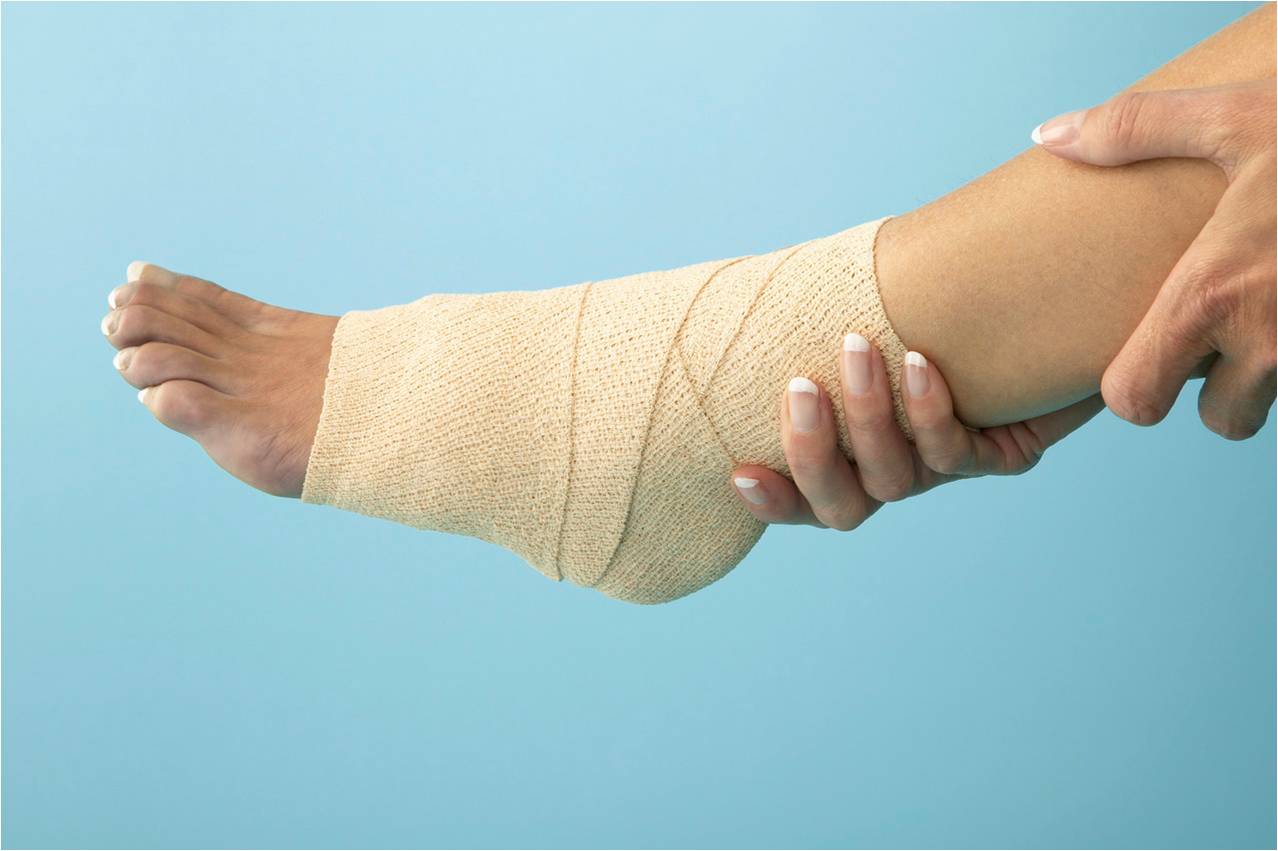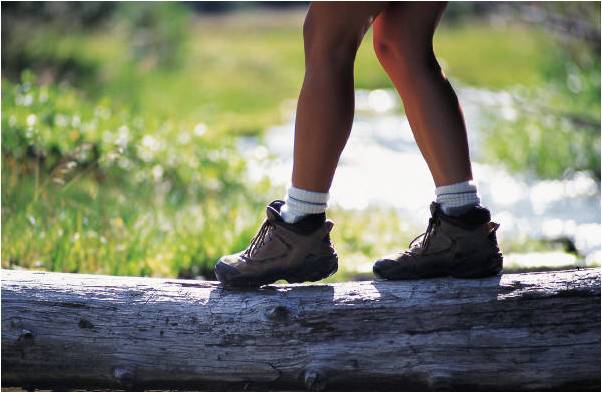Foot and Ankle Injuries
Foot and ankle emergencies happen every day. Broken bones, dislocations, sprains, contusions, infections, and other serious injuries can occur at any time. Early attention is vitally important. Whenever you sustain a foot or ankle injury, you should seek immediate treatment from Dr. Bruscia. That advice is universal, even though there are lots of myths about foot and ankle injuries.

Myths
- 1. "It can't be
broken, because I can move
it" False; this widespread idea
has kept many fractures from receiving proper treatment. The truth
is that often you can walk with certain kinds of fractures. Some
common examples: breaks of the thinner of the two leg bones; small
"chip" fractures of either foot or ankle bones; and the frequently
neglected fracture of a toe.
2. "If you break a toe, immediate care isn't necessary." False; a toe fracture needs prompt attention. If X-rays reveal it to be a simple, displaced fracture, care by your podiatrist usually can produce rapid relief. However, X-rays might identify a displaced or angulated break. In such cases, prompt realignment of the fracture by your podiatric physician will help prevent improper or incomplete healing. Many patients develop post-fracture deformity of a toe, which in turn results in formation of a painfully deformed toe with a most painful corn. A good general rule is: Seek prompt treatment for injury to foot bones. - 3. "If you have a foot or ankle injury, soak it in hot water immediately." False; don’t use heat or hot water if you suspect a fracture, sprain, or dislocation. Heat promotes blood flow, causing greater swelling. More swelling means greater pressure on the nerves, which causes more pain. An ice bag wrapped in a towel has a contracting effect on blood vessels, produces a numbing effect, and prevents swelling and pain, After seeing Dr. Bruscia, warm compresses and soaks may be used.
- 4. "Applying an elastic bandage to a severely sprained ankle is adequate treatment” False; ankle sprains often mean torn or severely overstretched ligaments, and they should receive immediate care. X-ray examination, immobilization by casting or splinting, and physiotherapy to insure a normal recovery all may be indicated, Surgery may even be necessary.
- 5. "The terms 'fracture, ‘break,' and 'crack' are all different" False; all of those words are proper in describing a broken bone.
Before Seeing Dr. Bruscia
- If an injury or accident does occur, the steps you can take to help yourself until you can reach Dr. Bruscia are easy to remember if you can recall the word “RICE."
- 1. Rest. Cut back on your activity, and get off your feet if you can.
- 2. Ice. Gently place a plastic bag of ice, or ice wrapped in a towel, on the injured area in a 20-minute-on, 40-minute-off cycle.
- 3. Compression. Lightly wrap an Ace bandage around the area, taking care not to pull it too tight.
- 4. Elevation. Sit in a position that you can elevate the foot higher than the waist, to reduce swelling and pain.
- 5. Switch to a soft shoe or slipper, preferably one that Dr. Bruscia can cut up in the office if it needs to be altered to accommodate a bulky dressing.
- 6. For bleeding cuts, cleanse well, apply pressure with gauze or a towel, and cover with a clean dressing. It’s best not to use any medication on the cut before you see Dr. Bruscia.
- 7. Leave blisters unopened if they are not painful or swollen.
- 8. Foreign materials in the skin, such as slivers, splinters, and sand, can be removed carefully with a sterile instrument. A deep foreign object, such as broken glass or a needle, must be removed professionally.
- 9. Treatment for an abrasion is similar to that of a burn, since raw skin is exposed to the air and can easily become infected. Cleansing is important to remove all foreign particles. Sterile bandages should be applied, along with an antibiotic cream or ointment.
Podiatric Medical Care
If pain and other symptoms of inflammation – redness, swelling, heat – persist, you should limit normal daily activities and contact Dr. Bruscia. He may perform various diagnostic X-rays, to rule out heel spurs or fractures. Early treatment might involve oral or injectable anti-inflammatory medication, exercise and shoe recommendations, taping or strapping, or use of various shoe inserts – orthotic devices. Taping or strapping supports the foot, placing stressed muscles in a physiologically restful state and preventing stretching of the plantar fascia. Physical therapy may be used in conjunction with such treatments. A functional orthotic device may be prescribed for correcting biomechanical imbalance, supporting the heel, controlling excessive pronation and stretching of the plantar fascia. It will effectively treat the majority of heel and arch pain without the need for surgery. Only a relatively few cases of heel pain require surgery. If surgery is necessary, it is usually for the removal of a spur, but also may involve release of the plantar fascia, removal of a bursa, or removal of a neuroma or other soft-tissue growth.

Prevention
1. Wear the correct shoes for any
event. Good walking shoes provide more comfort and better
balance.
2. Wear hiking shoes or boots in rough terrain.
3. Different sports activities call
for specific footwear to protect feet and ankles. Use the correct
shoes for each sport Don't wear any sports shoe beyond its useful
life.
4. Wear safety shoes if you're in an
occupation which threatens foot safety. There are specific safety
shoes for a variety of on-the-job conditions. Be certain they are
fitted properly.
5. Always wear hard-top shoes when
operating a lawn mower or other grass-cutting
equipment.
6. Don't walk barefoot on paved
streets or sidewalks.
7. Watch out for slippery floors at
home and at work. Clean up obviously dangerous spills
immediately.
8. If you get up during the night, turn on a light. Many fractured
toes and other foot injuries occur while attempting to find your
way in the dark.
